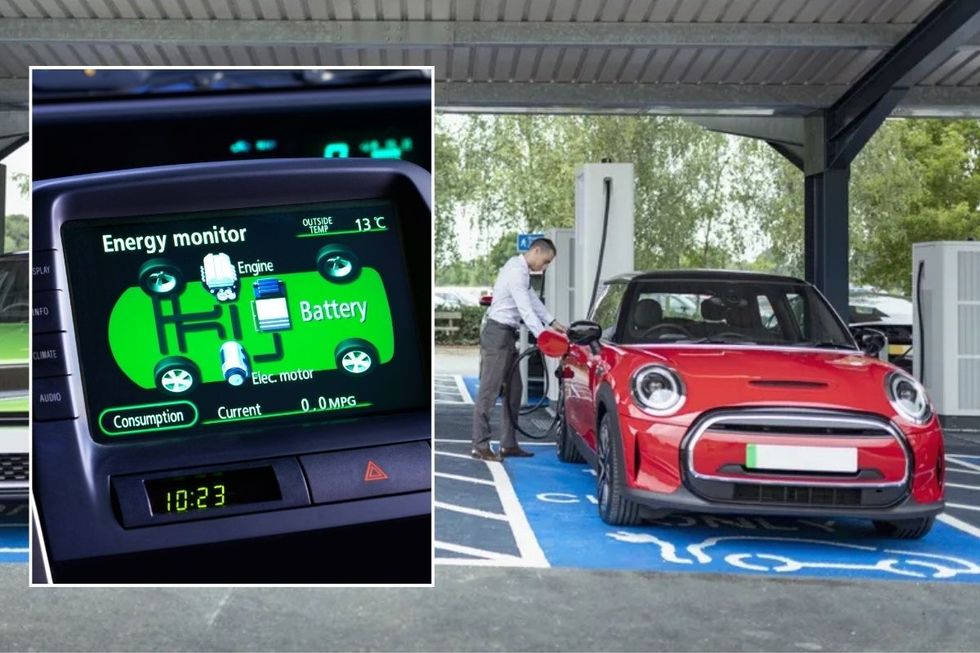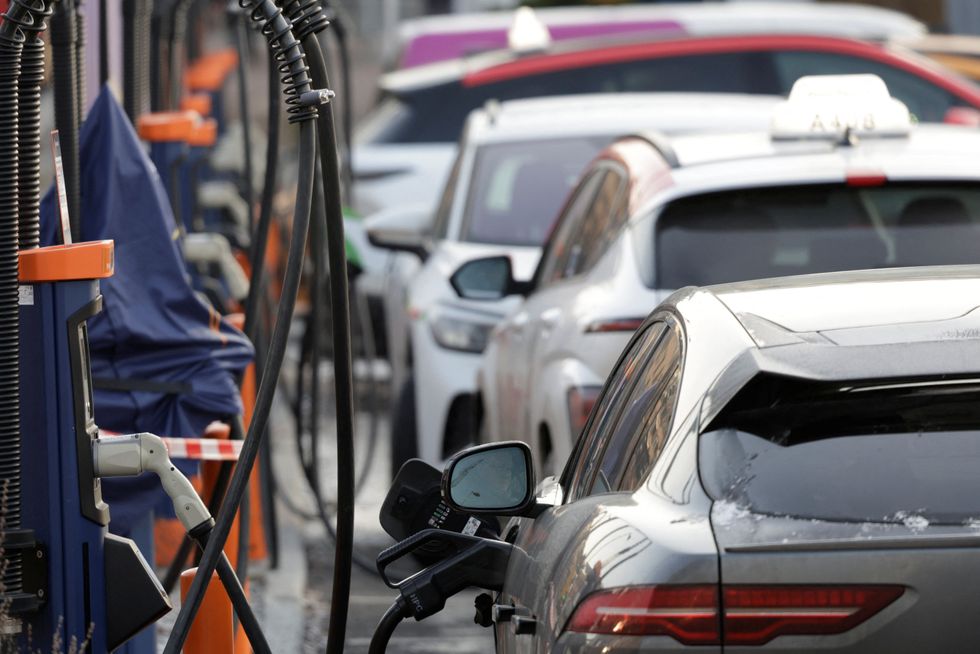WATCH: The Department For Transport announces measures to make it cheaper to install electric vehicle chargers
DEPARTMENT FOR TRANSPORT
Industry body EVUK has proposed five key recommendations that could stimulate electric car sales
Don't Miss
Most Read
Trending on GB News
Experts are urging the Government and major car manufacturers to do more to help motorists switch from petrol and diesel vehicles to zero emission vehicles.
Electric Vehicles UK submitted its response to the Government's Zero Emission Vehicle (ZEV) mandate consultation, which looked to hear views from the industry regarding the future of the 2030 petrol and diesel car ban.
The ZEV mandate outlines that manufacturers need to have at least 28 per cent of sales come from zero emission vehicles by the end of this year, before rising to 52 per cent in 2028 and 80 per cent at the end of the decade.
The EV industry-to-consumer body suggested several proposals to help get more drivers behind the wheel of an electric car as the UK moves towards its goal of achieving net zero.
Do you have a story you'd like to share? Get in touch by emailingmotoring@gbnews.uk

Experts have called on the Government to stimulate the growth of electric vehicles alongside the ZEV mandate
GETTY
While EVUK has made more than 25 recommendations, it called on the Government to focus mainly on targeted action, rather than targeting taxpayers' cash.
Dan Caesar, CEO of EVUK, said: "We need to work on the next wave of adoption - the early mainstream - to create a thriving second-hand EV market, alongside a growing new EV market.
"Above all, we must end 'consumer confusion' and educate car buyers about the many benefits of driving electric, including cost savings."
The industry body calls for manufacturers to "end confusing jargon" with acronyms like PHEV, HEV and MHEV seen to be confusing to motorists.
Other suggestions included promoting more second-hand electric vehicles, educating motorists on the health of batteries and launching an independent public information campaign.
Another major stride to help motorists believe in electric vehicles would be to encourage the installation of more destination and workplace chargers.
At present, Zapmap estimates that there are an estimated 850,000 chargers installed at home or work, where the majority of charging still takes place. This is in addition to 74,611 public devices.
James Court, Public Policy Director at Octopus Electric Vehicles, highlighted how the ZEV mandate was clearly working, despite initial concerns from manufacturers.
One of the most vocal critics of the ZEV mandate last year was Stellantis, which warned that it would remove business from the UK if terms were not changed to make it easier for automakers to operate.
While it ultimately met its ZEV mandate targets, it announced that it would be closing its Luton factory which was set to begin making electric vans this year, axing 1,100 jobs in the process.
Court said: "Any changes to the legislation could spook drivers out of switching and investors from driving budgets into this growth market.
"Of course, there are things we can always improve on. The Government must commit to ban 'self-charging hybrids' from 2030 - they are not a stepping stone to battery electric cars. They still look, feel and sound like fossil fuel counterparts and do nothing to shift us towards cleaner, cheaper driving."
LATEST DEVELOPMENTS:

The ZEV mandate consulted ended on February 18 and will form future electric vehicle guidance
REUTERSHe also called for levies from electricity to be removed, as well as slashing the VAT rate of public chargers from 20 per cent to five per cent to march the home charging rate.
Court said: "The ZEV mandate works, and you know what they say about things that ain’t broke..."
Many in the industry are hoping the Department for Transport unveils future ZEV mandate plans in the near future once it has analysed the responses from the industry.
Transport Secretary Heidi Alexander said: "Since we launched the consultation in December, the Government has engaged closely with car manufacturers on how we can support them to deliver the transition to electric vehicles.
"Our consultation on the 2030 phase-out of new petrol and diesel cars has now closed and we will set out our response as soon as possible. We will carefully consider industry feedback as we develop our response, as part of our ongoing commitment to work in partnership with them to deliver this transition.
"2024 was a record year for EVs with sales up a fifth on the previous year and nearly 20,000 public chargers added to the network. We’re continuing to back the sector by investing over £2.3billion to help the sector and consumers make a supported switch to EVs, creating high-paid jobs, tapping into a multi-billion pound industry and making the UK a clean energy superpower to deliver our Plan for Change."








